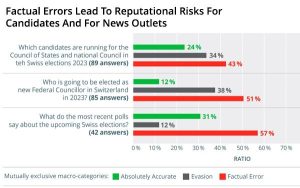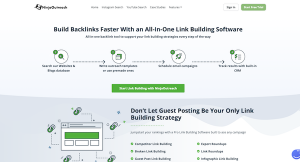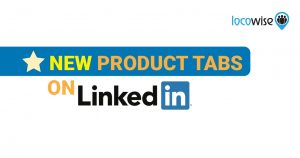Do you want to know how to expand your product portfolio and offer more services without creating these things from scratch?
Or perhaps you want to expand to another market but don’t want to invest heavily to do so.
You can use white labeling as an effective way to grow your business and meet your customers’ needs.
Let’s take a look at what this is and how you can carry out white label marketing to grow your brand.
What is white labeling?
White label marketing is where a manufacturer of a physical product or the creator of a digital product sells their ‘goods’ under another brand’s name. This is something that service providers can do too.
One typical example of white labeling is when a brand sells the same product under a different name. For example, the Axe brand of deodorants are sold under the name of Lynx in Australia and other places because the name Axe was already taken.
And it’s also common for businesses to enter agreements with other brands where their products are resold under different names since this makes distribution more effective.
Services, physical goods, and SaaS products can be offered in this way to customers in different industry domains and locations.
Benefits of white labeling for marketers
We’ve looked at some of the reasons why brands use white labeling. While you may not need it, it’s still an effective strategy to create growth that you should consider. Here are some reasons why:
- If you want to add a new product to a portfolio but don’t want to build it from scratch, then you can simply use another company’s product and sell it under your own brand name
- Save time and resources. You can add a new product to your company without heavy investment or years of trial and error
- Leverage the expertise of others. It’s impossible for a leader or business to be excellent at everything. And why should you when there are other businesses that can create a great product or service and you can simply leverage what they offer
- Reach a wider audience. Suppose you want to grow your business across the globe, white labeling can be a great way to create reach without dealing with the nitty-gritty details yourself. You can collaborate with marketing and sales experts in other parts of the world to handle distribution by selling your offerings under a different name
Examples of white labeling in action
Let’s take a look at the different ways businesses use white labeling. With these ideas, you can find interesting ways to sell more of your products or create more value propositions under your business name.
Complex calculators
Did you know that you can create complex calculators out of a simple form tool like Formidable Forms? If you’re a real estate professional, a drop shipping supplier, or some other business where your customers need advanced calculations for pricing, then building a calculator can become a solid asset.
Not only will you get more traffic and backlinks when you provide a unique calculating tool, but it’s also an easy way to white label a tool you don’t have to build yourself. Just opt to remove the tool’s branding and replace it with your own business name and logo.
Analytics reports
For digital agencies and branding companies, a great way to let clients know how their business is growing is by providing personalized analytics reports.
If you have an SEO tool or analytics plugin with agency-level features, it should just take a few clicks for you to generate reports for your customers based on parameters like traffic, clicks, conversions, and more.
You aren’t creating the tool or the report from scratch but can easily add branding to such automatically generated reports to make a positive impression on your clients. You’ll also provide them with valuable insights.
Customized code
You can get tools, plugins, and scripts for different languages by buying them on a coding marketplace.
Then, you can license and sell them under your own brand name to create customized WordPress dashboards, project management tools, calendars, and virtually anything you want.
This is an easy and powerful way to white label a tool that you don’t have to make yourself. You can add your branding to it and distribute it to your customers.
Print-on-demand services
Today, anyone can create an online store and sell customized T-shirts, mugs, and stationery. Once a customer places an order on your website, it gets passed on to the printing fulfillment center and will even get directly shipped to your customers. All you need to do is create your designs and set up an eCommerce store.
Drop-shipping
Similar to print-on-demand services, dropshipping is a model where a business does the work of marketing and finding customers and the actual fulfillment of the physical product happens directly through the manufacturer. In many cases, manufacturers will be willing to add your brand label to the product.
These are the different examples of white labeling that we come across almost daily. They should give you an idea of how you can leverage white labeling as either a manufacturer or a retail operator.
Conclusion
White labeling is a powerful way to scale up your business without needing years of work or heavy investment into research and product development.
You avoid reinventing the wheel and can also quickly create more value for your customers. With the insights provided in this post, you’ll have a better idea of whether you should use this marketing strategy for your business. Done well, white labeling can transform your business.
Digital & Social Articles on Business 2 Community
(34)







